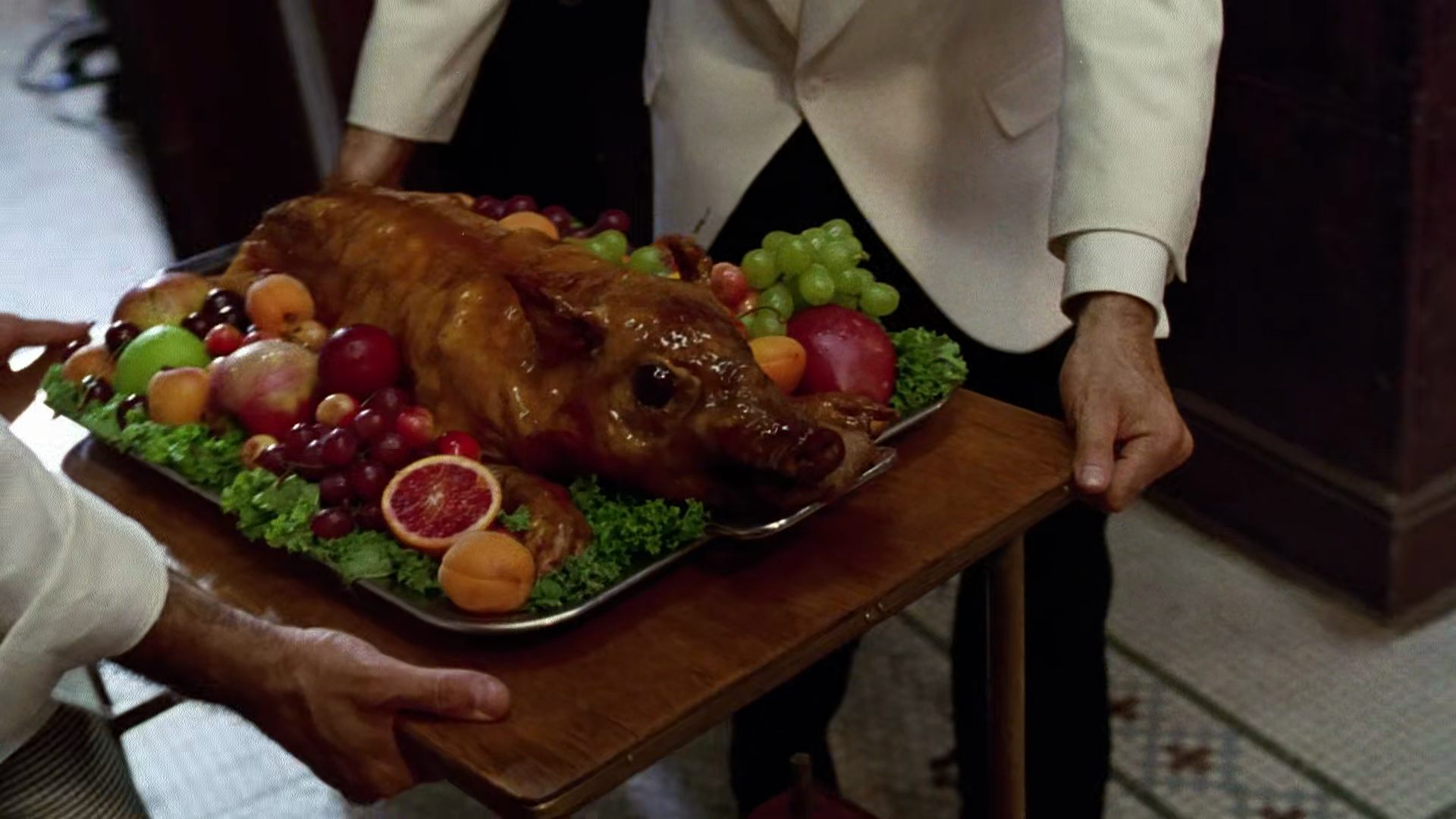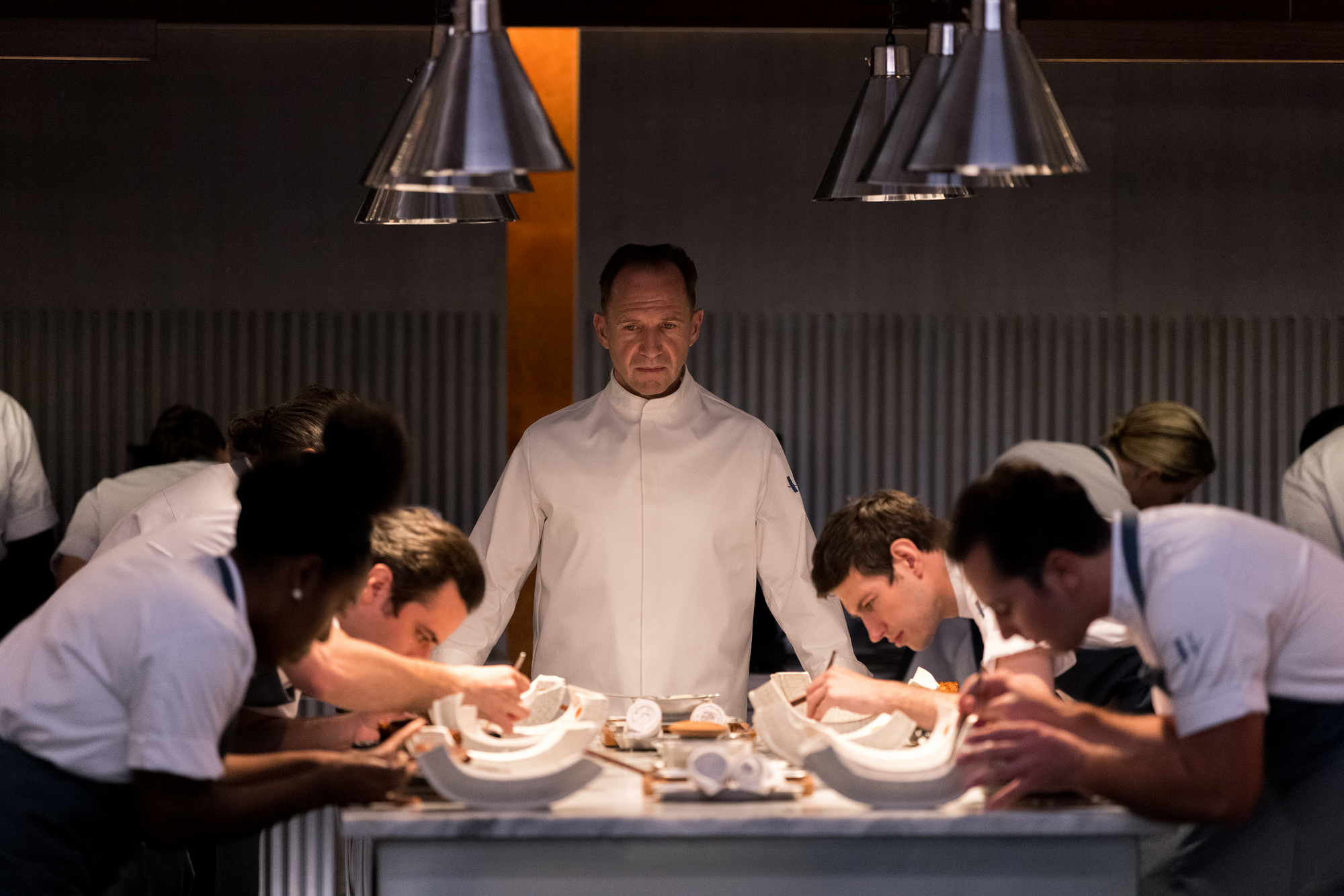Friday Marathon: Too Much Food

For after Thanksgiving, three movies about what food means to us:
BIG NIGHT
USA, 1996, d. Campbell Scott & Stanley Tucci, 1h49m, Amazon/iTunes
Tony Shaloub and Stanley Tucci play Italian brothers, Primo and Secondo, named as only their ultra-traditional restaurateur father could name them. Their American venture is struggling. Primo is also stuck in tradition; he sees innocuous customer requests as crimes against Italian culture. A colleague calls in a favor to a major restaurant critic, and together they put on a big feast for all their friends to impress him. In an indie drama of surprising quietness and sadness and homesickness, the feast sequence in Big Night is an explosion of warmth and energy and emotion.
Food is family. Food is life.

TAMPOPO
Japan, 1985, d. Jûzô Itami, 1h54m, The Criterion Channel
The great Ken Watanabe plays a cowboy (trucker) who rolls into an unnamed town one night and steps into the local saloon (ramen shop). The young woman who runs it is beset on all sides by angry thugs (other ramen shops). What starts as a western, oddly set to Mahler and Liszt, becomes a sports film - there's a training montage. They go undercover to steal their competition's best secrets and craft the perfect bowl of ramen together. Meanwhile, other stories about food intrude. A class on Italian pasta-eating etiquette goes awry. An old man won't stop sneaking the food his nurse says he'll choke on. He just can't help himself. No one in this movie can. Tampopo is a visual, cinematic feast, wildly original and full of joy.
Food is the ultimate pleasure, and a reason for living.

THE MENU
USA, 2022, d. Mark Mylod, 1h47m, Currently in theatres
How do chefs maintain their creativity and their love for serving people? If a chef is trying to tell a story or create great art at great expense, who will appreciate it? Are the pleasures of expensive fine dining greater than a well-made burger? Don't the lengths high-end restaurants go to create "sustainability" make it affordable only to the few? The Menu pits the restaurant workers who slave to perfect their craft against the diners who can afford a $1,200 meal ticket. It's a thriller with a touch of horror, drenched in dark comedy and satire. The plot asks you to suspend disbelief a few times, but it's worth it for how aware it is of the troubling realities of the restaurant industry. The filmmakers love this food, but also have concerns about our widening wealth gap. If food is about money, how can it still be about family or love?
Food is sometimes just food, and we all need it and deserve it.
